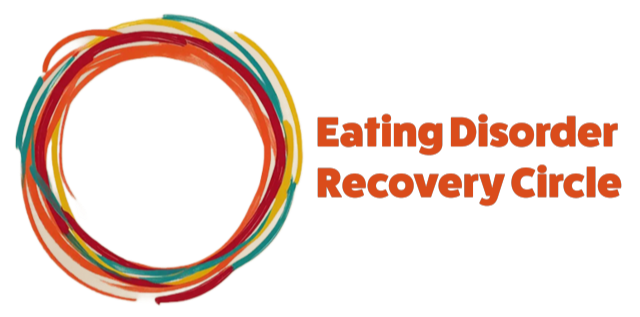August 19 Q&A - Fear, Trust, and the Messy Middle
Aug 19, 2025This week’s questions took us right into the heart of recovery fears: fear of weight gain, fear of being an imposter, fear of purging, fear of gaining too quickly, and fear of never finding freedom with movement.
These are the raw places where recovery either deepens—or stalls. And facing them is how you move forward.
Let’s get into it.
1. “I want food freedom, but I’m paralysed by fear of weight gain.”
One member shared privately from a place of despair: she longs for food freedom but feels equally terrified of weight gain, and fears this attempt will end like all the others—with more pain.
Sweetheart, this isn’t a lack of strength. It’s the voice of your younger self—the inner child who once felt unsafe, unseen, or unloved, and learned that controlling food and body was the only way to cope. She doesn’t need logic. She needs love, comfort, and reassurance that she won’t be abandoned if she lets go of control.
Recovery doesn’t have to start with a grand, decisive “this is it.” Sometimes it starts with a whisper—a willingness to try differently. Not pushing harder, but creating safety through connection, compassion, and presence.
You haven’t failed. You’re still here, which means part of you still wants to heal. You are not broken. You are worthy of peace.
2. “Now that I’ve gained some weight, was I really that ill? Am I just making excuses?”
Michelle has been eating more for a few months, her BMI is in a healthier range, and physically things feel easier. But now she doubts her illness and worries she’s using recovery as an excuse to eat and rest.
This is the messy middle, sweetheart—the point where your body looks better on the outside, but your brain hasn’t caught up. And here’s the truth:
-
You wouldn’t be in recovery if there wasn’t something to recover from. Minimising your illness is the eating disorder’s tactic to pull you back.
-
Recovery doesn’t need to be tortured to be valid. It feels easier now because you’ve already done the hardest part—starting.
-
Resting and eating are treatment, not excuses. You wouldn’t call a friend lazy for resting after surgery. This is the same.
-
Weight isn’t recovery—freedom is. Your body may look “better,” but the rewiring is still happening inside. Stopping now is like pulling a cake out of the oven when it looks baked outside but is still raw within.
You’re not an imposter. You’re doing the work. Keep going.
3. “If I’ve eaten so much I’m in agony, is it wrong to purge just once for relief?”
Sue asked what so many quietly wonder: is it okay to purge if the fullness is unbearable?
Sweetheart, wanting relief is human. But purging—even “just once”—tells your body food isn’t safe, that fullness means danger, and it erodes the fragile trust you’re trying to build.
Instead, try soothing strategies:
-
A hot water bottle on your tummy
-
Peppermint tea
-
Gentle tummy massage
-
Slowing your breath
-
Speaking kindly to your body: “I know you’re hurting. I’m here. I won’t abandon you.”
And if you do purge? Don’t spiral into shame. Repair is always possible. The goal isn’t perfection—it’s building safety with your body, step by step.
4. “I’ve just started recovery and gained weight really fast. Will this continue?”
Sarah Jane recently increased her intake and has seen rapid weight gain, which feels frightening.
This is completely normal. After restriction, the body enters emergency repair mode:
-
It restores glycogen (and the water that comes with it).
-
It rebuilds organs, bones, and muscles.
-
It holds on to fat temporarily for protection.
This early gain usually slows once the body trusts food is consistent and famine is over. Movement, especially if it’s compulsive, can keep the body on high alert—so reducing walking can help your body feel safer.
Rapid gain doesn’t mean you’re doing something wrong. It means your body is finally exhaling. She’s fighting for your life—trust her.
5. “Will I ever be able to exercise again without ED thoughts?”
Katie loves long coastal walks but worries she’ll never separate them from compulsive motives.
Yes, sweetheart—it is possible to return to joyful, free movement. But only after the wiring is fully healed. Right now, even if the walk feels joyful, the duration and intensity are still tied to the eating disorder. Continuing risks reinforcing the old wiring.
That’s why full rest is needed now—not as punishment, but as a chance to rebuild trust. The coast will still be there. The trails will wait. And when you return, it won’t be about earning food, burning guilt, or proving worth. It will simply be joy.
That day will come—but only if you stop watering the weed now, so the flower can grow.
You Are Doing It
From despair to doubt, from the urge to purge to the fear of never moving freely again—every one of these questions is proof of how hard you are fighting.
Recovery isn’t about doing it perfectly. It’s about choosing trust, compassion, and nourishment again and again, even when fear screams louder.
You are not broken. You are becoming.
And we are right here with you.

